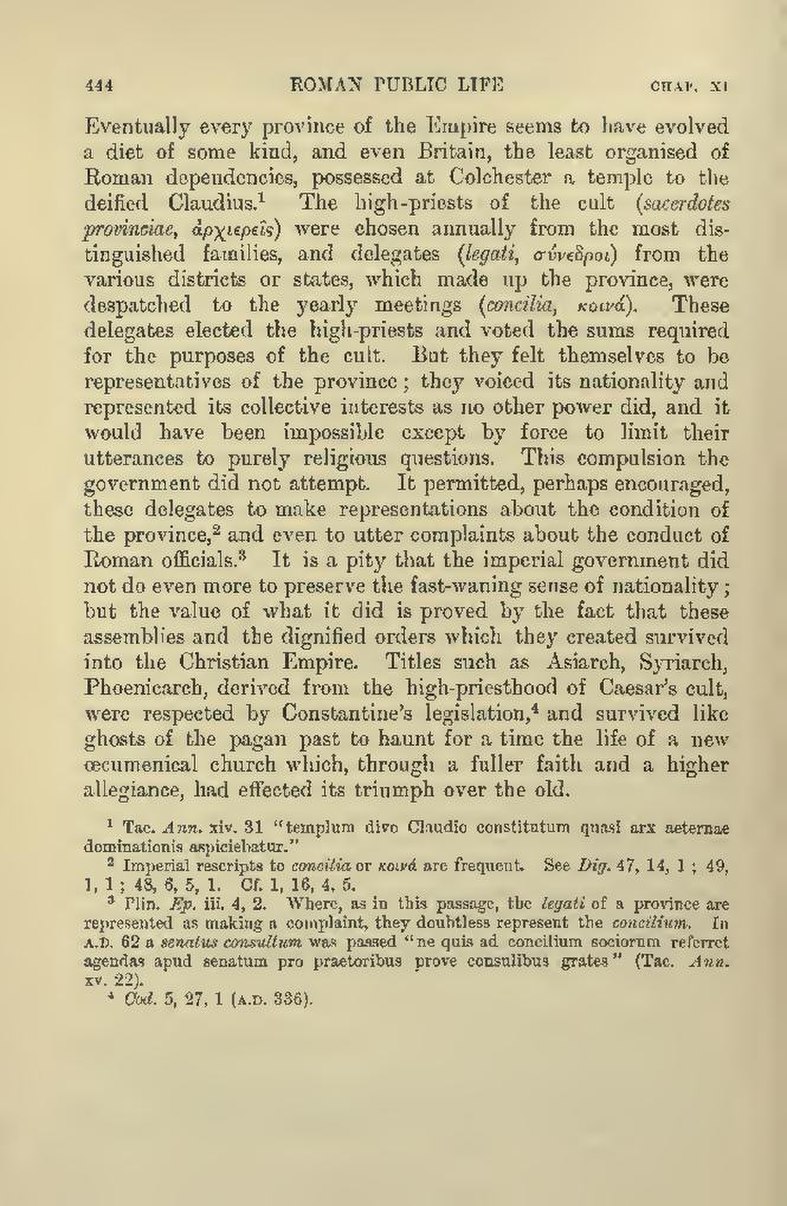Eventually every province of the Empire seems to have evolved a diet of some kind, and even Britain, the least organised of Roman dependencies, possessed at Colchester a temple to the deified Claudius.[1] The high-priests of the cult (sacerdotes provinciae, [Greek: archiereis]) were chosen annually from the most distinguished families, and delegates (legati, [Greek: synedroi]) from the various districts or states, which made up the province, were despatched to the yearly meetings (concilia, [Greek: koina]). These delegates elected the high-priests and voted the sums required for the purposes of the cult. But they felt themselves to be representatives of the province; they voiced its nationality and represented its collective interests as no other power did, and it would have been impossible except by force to limit their utterances to purely religious questions. This compulsion the government did not attempt. It permitted, perhaps encouraged, these delegates to make representations about the condition of the province,[2] and even to utter complaints about the conduct of Roman officials.[3] It is a pity that the imperial government did not do even more to preserve the fast-waning sense of nationality; but the value of what it did is proved by the fact that these assemblies and the dignified orders which they created survived into the Christian Empire. Titles such as Asiarch, Syriarch, Phoenicarch, derived from the high-priesthood of Caesar's cult, were respected by Constantine's legislation,[4] and survived like ghosts of the pagan past to haunt for a time the life of a new œcumenical church which, through a fuller faith and a higher allegiance, had effected its triumph over the old.are frequent See Dig. 47, 14, 1; 49, 1, 1; 48, 6, 5, 1. Cf. 1, 16, 4, 5.]
- ↑ Tac. Ann. xiv. 31 "templum divo Claudio constitutum quasi arx aeternae dominationis aspiciebatur."
- ↑ Imperial rescripts to concilia or [Greek: koina
- ↑ Plin. Ep. iii. 4, 2. Where, as in this passage, the legati of a province are represented as making a complaint, they doubtless represent the concilium. In A.D. 62 a senatus consultum was passed "ne quis ad concilium sociorum referret agendas apud senatum pro praetoribus prove consulibus grates" (Tac. Ann. xv. 22).
- ↑ Cod. 5, 27, 1 (A.D. 336).
